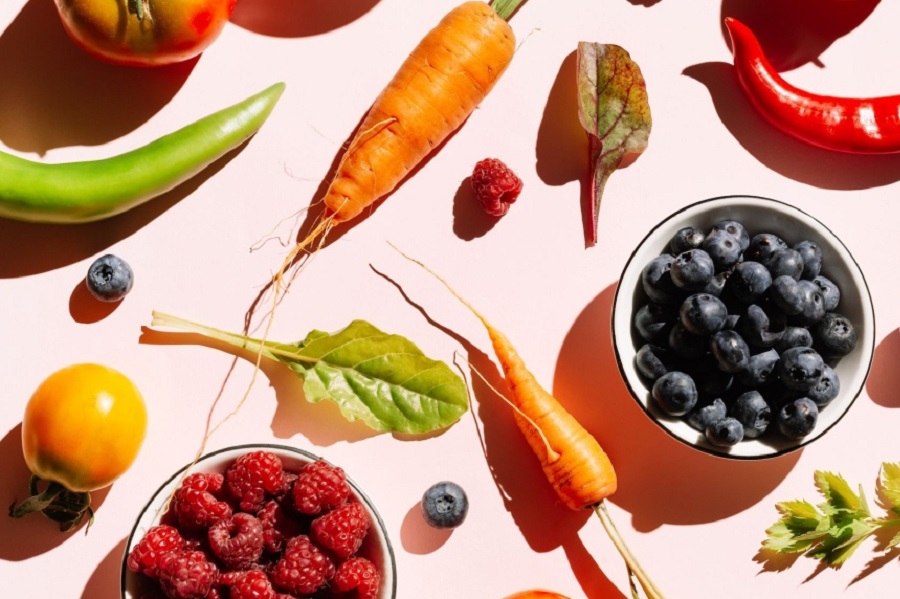11 Dec 2024

Tired Earth
By The Editorial Board

Doctors recommend making fruits and vegetables a foundational part of the treatment of patients with hypertension. Diets high in fruits and vegetables are found to lower blood pressure, reduce cardiovascular risk, and improve kidney health due to their base-producing effects. A new study in The American Journal of Medicine, published by Elsevier, details the findings from a five-year interventional randomized control trial.
Despite ongoing efforts to improve hypertension treatment and reduce its adverse outcomes with pharmacological strategies, hypertension-related chronic kidney disease and its cardiovascular mortality are increasing. Heart disease is the number one reason that patients with chronic kidney disease die.
The Dietary Approaches to Stop Hypertension (DASH) diet that is rich in fruits and vegetables reduces blood pressure and is the recommended first-line treatment for primary hypertension. Nevertheless, this diet is under-prescribed, and when prescribed is under-implemented despite supportive epidemiological data. The DASH diet and others generally high in fruits and vegetables are associated with lower blood pressure, lower risk for and progression of chronic kidney disease, lower cardiovascular disease risk indicators, and lower cardiovascular disease mortality.
Lead investigator of the study Donald E. Wesson, MD, MBA, Department of Internal Medicine, Dell Medical School -- The University of Texas at Austin, says, "As a nephrologist (kidney doctor), my acid-base laboratory studies ways by which the kidney removes acid from the blood and puts it into the urine. Our animal studies showed years ago that mechanisms used by kidneys to remove acid from the blood can cause kidney injury if the animals were chronically (long term) exposed to an acid-producing diet. Our patient studies showed similar findings: that is, an acid-producing diet (one high in animal products) was kidney-harmful, and one that is base-producing (one high in fruits and vegetables) is kidney-healthy. Other investigators showed that a diet high in fruits and vegetables is heart-healthy. We hypothesized that one way that fruits and vegetables are both kidney- and heart-healthy is that they reduce the amount of acid in the diet and therefore the amount of acid that kidneys have to remove from the body."
To test this hypothesis, a study was designed in which participants with hypertension, but not diabetes, and very high levels of urine albumin excretion (macroalbuminuria) were selected. Patients with macroalbuminuria have chronic kidney disease, a high risk for the worsening of their kidney disease with time, and a high risk to subsequently develop cardiovascular diseases. In a randomized control trial over a five-year period, investigators divided the cohort of 153 patients with hypertension into three groups:
The results of the study show that both fruits and vegetables and NaHCO3 improved kidney health, but only fruits and vegetables, and not NaHCO3, reduced blood pressure and improved indices of cardiovascular disease risk.
Co-investigator Maninder Kahlon, PhD, Department of Population Health, Dell Medical School -- The University of Texas at Austin, explains, "Importantly, fruits and vegetables achieved the latter two benefits with lower doses of medication used to lower blood pressure and reduce cardiovascular disease risk. This means that one can get the kidney health benefits with either fruits and vegetables or NaHCO3, but we get the blood pressure reduction and reduced cardiovascular disease risk with fruits and vegetables, but not with NaHCO3. This supports our recommendation that fruits and vegetables should be 'foundational' treatment for patients with hypertension, because we accomplish all three goals (kidney health, lower blood pressure, and reduced cardiovascular disease risk) with fruits and vegetables, and we can do so with lower medication doses.
The research team emphasizes "foundational" because many clinicians begin hypertension treatment with drugs and then add diet strategies if blood pressure is not properly controlled. The findings from its studies support the opposite: treatment should begin with fruits and vegetables and then add drugs as needed.
Dr. Wesson concludes, "Dietary interventions for chronic disease management are often not recommended and even less often executed because of the many challenges to get patients to implement them. Nevertheless, they are effective, and in this instance, kidney and cardiovascular protective. We must increase our efforts to incorporate them into patient management and more broadly, make healthy diets more accessible to populations at increased risk for kidney and cardiovascular disease."
The researchers also advise patients with hypertension to ask their clinician to measure a urine albumin-to-creatinine ratio (UACR) to determine if they have underlying kidney disease and an increased risk for subsequent cardiovascular disease.
Source : sciencedaily.com
Comment